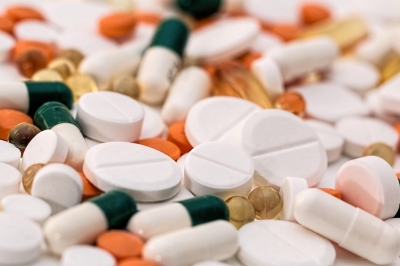Health/medicine
Vaccination saved billions of lives, key to fight infections: Doctors
New Delhi, April 29 (IANS) Vaccination has saved billions of lives globally and helped boost immune system to fight infections, said doctors on Monday, as part of World Immunisation Week.
According to the World Health Organization (WHO), immunisation efforts have saved at least 154 million lives over the past 50 years worldwide.
“On the occasion of World Immunisation Week, we all should take a pledge that everyone should get proper immunisation as needed. Vaccination has saved billions of lives,” Dr Ravindra Gupta, Head of Department, Internal Medicine, C.K. Birla Hospital, Gurugram, told IANS.
“Our immune system fights against pathogens and protects us from infectious diseases. Vaccination helps our immune system fight against these infections and protects ageing adults and children from severe infections,” added Dr Agam Vora, General Secretary of the Association of Physicians of India.
The progress achieved on immunisation suffered a severe setback with some 20 million children missing out on one or more of their vaccines during the recent global Covid-19 pandemic. Further, growing conflicts, economic downturns, and a rise in vaccine hesitancy are some of the threats to efforts to reach these children.
“As a result, the world is seeing sudden outbreaks of diphtheria and measles diseases that, until now, we’d had nearly in hand,” as per the WHO.
Immunisation eradicated smallpox and almost eliminated polio. Despite childhood immunisation being highly successful, adult immunisation for pneumonia, various kinds of flu viruses, Covid, cervical cancer, and now herpes zoster are lagging.
Dr Agam told IANS that vaccination can be key to protecting ageing adults from serious infections and their complications such as shingles, pneumonia, and influenza. It is because the immune system also undergoes ageing and does not function as well.
Similarly, children below the age of five also need vaccination because their immune system is not fully developed. This makes them susceptible to multiple infections that can interfere with their growth and development, the doctor said.
–IANS
rvt/sd/kvd
Health/medicine
US FDA gives nod to Musk's Neuralink to implant brain chip in 2nd person


New Delhi, May 20 (IANS) Tesla CEO Elon Musk-run brain-computer interface company Neuralink has reportedly received a nod from the US Food and Drug Administration (FDA) to implant its brain chip in a second person.
The approval for the second person to have a Neuralink chip came as the first recipient — Noland Armagh in the US — detailed his emotional journey.
The latest chip in the second recipient comes with some fixes, like embedding some of the device’s ultrathin wires deeper into the brain, The Wall Street Journal reported on Monday.
Musk or Neuralink were yet to officially react to the development.
The Neuralink chip can help restore full body control in people suffering from paralysis. The company earlier achieved a successful brain-chip implant with Armagh and began the applications for the second participant for the chip implant.
According to Musk, the company can bridge “severed nerve signals to a second Neuralink in the spine, restoring full body control”.
With the chip in his brain, Arbaugh has enabled “telepathic control of a computer or phone just by thinking”. The Neuralink trials aim to assess the initial functionality of the wireless brain-computer interface for enabling people with paralysis to control external devices with their thoughts.
–IANS
na/vd
Health/medicine
Delhi HC dismisses PIL seeking directions to medical professionals to reveal side effects of medicines


New Delhi, May 20 (IANS) The Delhi High Court has dismissed a public interest litigation (PIL) seeking a direction to all medical professionals to provide an additional slip detailing possible risks and side effects associated with prescribed medicines.
A Bench, headed by Acting Chief Justice Manmohan, said that since the legislature, in its wisdom, has elected to impose this duty on the manufacturer and the pharmacist, it would “amount to judicial legislation” if a direction is issued as prayed for in the PIL.
“It is admitted that there is no (legal) vacuum, the directions prayed for cannot be issued. Accordingly, the present PIL along with applications is dismissed,” the bench, also comprising Justice Manmeet Pritam Singh Arora, ordered.
The PIL said that the patient has a right to make an informed choice and therefore, it should be mandatory for the doctor prescribing the drug to explain the side effects and possible risks attached to the prescribed drugs.
It added that upon being made aware of the side effects of the drug being prescribed by the doctor, the patient would be able to make an informed choice, whether to consume it or not.
Referring to the existing regime, where the obligation to communicate the potential risks and side effects exists on the manufacturer and the pharmacists, the plea said that it is the medical practitioner prescribing the drug, who should be made responsible for handing out the information about the potential risk to the patient in the regional language.
In its response, the Union government stated that the Drugs and Cosmetics Act, 1945 and the Pharmacy Practice Regulations, 2015 already ensure that the risk is duly communicated to the patient, adding that the direction sought would hinder rather than facilitate medical advice to the patients.
–IANS
pds/vd
Health/medicine
178-yr-old practice of distributing ‘fish prasadam’ in Hyderabad to be on June 8-9


Hyderabad, May 20 (IANS) Bathini family will distribute ‘fish prasadam’ to people suffering from asthma and other respiratory ailments here on June 8-9. The family announced on Monday that the annual event will begin at 11 a.m. on June 8 at Exhibitions Grounds, Nampally, and will continue till 11 a.m. on June 9.
Bathini Vishwanatham Goud, president, Bathini Mrigasira Trust, told media persons that they are making all arrangements for the distribution of fish prasadam.
Asthma patients from various parts of Telugu states and other places in the country take this prasadam in June every year in the hope of finding relief from respiratory problems.
The family requested concerned government departments to make arrangements like every year for the smooth conduct of the event.
This will be the first event after the death of the head of the family, Bathini Harinath Goud. He passed away at the age of 84 in June last year, following prolonged illness.
He was the last of the fourth-generation Gouds distributing free fish medicine to asthma patients from across the country.
Harinath Goud was instrumental in organising the event for the last three decades after the demise of his elder brothers.
The Bathini Goud family claims to have been distributing this medicine free of cost for the last 178 years. The secret formula for the herbal medicine was given to their ancestor in 1845 by a saint after he took an oath that it would be administered free of cost.
Members of the Bathini Goud family administer the ‘wonder drug’ on ‘Mrigasira Karti’, (during the first week of June) which heralds the onset of the monsoon.
A yellow colour herbal paste prepared by the family is placed in the mouth of a live ‘murrel’ fingerling, which is then slipped through the throat of the patient. It is believed to provide much-needed relief if taken for three consecutive years. For vegetarians, the family gives medicine with jaggery.
Asthma patients from various parts of the country flock to Hyderabad to take this treatment. However, the medicine lost its popularity during the last 15 years due to controversies pertaining to the contents of herbal paste.
Some groups working to inculcate scientific temper among people, termed the fish medicine a fraud. They also approached the court, claiming that since the herbal paste contains heavy metals, it can cause serious health problems.
However, Goud family claims that the tests in laboratories conducted as per court orders revealed that the herbal paste is safe.
After the challenge by the rationalists, the family started calling it ‘fish prasadam’.
Despite the controversies, people continue to throng the venue every year in hope of finding some relief to their nagging respiratory problems. However, the numbers have dwindled over the years.
–IANS
ms/kvd
Health/medicine
18 per cent of teens drink caffeine to stay awake: Study


New Delhi, May 20 (IANS) Among parents who said their teen drinks caffeine most or all the day of the week, a new study on Monday revealed that 18 per cent drink it to “stay awake”.
The study conducted by the US-based University of Michigan found that a quarter (25 per cent) of parents reported their teen consumes caffeine daily or nearly every day.
“Our report suggests parents may not always be aware of how much they should be limiting caffeine consumption for teens,” said poll co-director and Mott paediatrician Susan Woolford, MD.
The study is based on responses from 1,095 parents of teens polled in February.
Parents reported that the most common caffeine sources for their teen are soda (73 per cent), tea (32 per cent), coffee (31 per cent), and energy drinks (22 per cent) and said that they take caffeine most frequently at home (81 per cent), when dining out (43 per cent), with friends (3 per cent), and at school (25 per cent).
“Caffeine is a drug that stimulates the brain and nervous system, and too much of it can contribute to a variety of health problems in young people,” Woolford said.
The American Academy of Pediatrics discourages caffeine intake by children and adolescents, and other experts suggest a limit of 100 milligrams per day for teens, the study mentioned.
About 60 per cent of parents said that they have heard about the risks of highly caffeinated products but roughly half mentioned that they rarely look at caffeine amounts when buying beverages for their teen.
“Parents should consider talking with their teen about the negative impact of excessive caffeine, and then explore non-caffeinated options they can try together at home, at school or when out with friends,” Woolford said.
“Parents may also enlist the teen’s healthcare provider in explaining the risks of caffeine and suggesting strategies to cut back,” she added.
–IANS
shs/svn
Health/medicine
Saudi king to undergo treatment for lung infection


Riyadh, May 20 (IANS) The Saudi Royal Court has announced that Saudi King Salman bin Abdulaziz Al Saud will undergo treatment for a lung infection.
He underwent medical examinations on Sunday at the Royal Clinics of Al-Salam Palace in Jeddah due to high temperature and joint pain, Xinhua news agency reported.
The Saudi king was admitted to the King Faisal Specialist Hospital and Research Centre in Jeddah on April 24 for a routine health checkup.
–IANS
int/khz
-
Video1 year ago
PM Modi Attacks Congress in Karnataka with “Kerala Story”
-
Cricket12 months ago
CSK players rejoice 5th IPL title with their families (Pics)
-
Politics1 year ago
Siddaramaiah & DK Shivakumar sworn in as Chief Minister & Deputy CM respectively
-
Entertainment11 months ago
Karan Deol weds his longtime Girlfriend Drisha Acharya (Pics)
-
Entertainment1 year ago
Urvashi Rautela dazzles on Cannes 2023 red carpet (Pics)
-
Entertainment12 months ago
Sunny Leone gets ready for Kennedy premiere in Cannes (Pics)
-
Entertainment1 year ago
Alia Bhatt looks crazy beautiful in Prabal Gurung creation at MET GALA 2023 (Pics)
-
Cricket1 year ago
Sakshi & Ziva Dhoni enjoy their time during CSK VS MI match

































